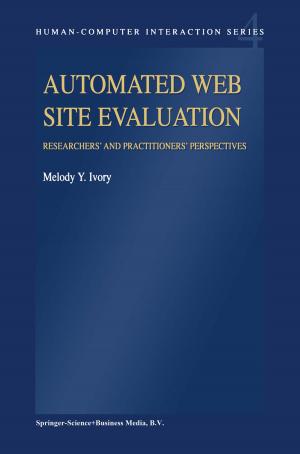Learning Trajectories, Innovation and Identity for Professional Development
Nonfiction, Reference & Language, Education & Teaching, Counseling & Guidance, Teaching, Teaching Methods| Author: | ISBN: | 9789400717244 | |
| Publisher: | Springer Netherlands | Publication: | September 18, 2011 |
| Imprint: | Springer | Language: | English |
| Author: | |
| ISBN: | 9789400717244 |
| Publisher: | Springer Netherlands |
| Publication: | September 18, 2011 |
| Imprint: | Springer |
| Language: | English |
Educators in the professions have always had unique demands placed upon them. These include the need to keep pace with rapidly evolving knowledge bases, developing skills and attitudes appropriate to practice, learning in the workplace and fostering public confidence.
For twenty years, these new demands have created additional educational imperatives. Public accountability has become more intensive and extensive. Practitioners practice in climates more subject to scrutiny and less forgiving of error. The contexts in which professionals practice and learn have changed and these changes involve global issues and problems. Often, professionals are the first responders who are required to take an active stance in defining and solving problems.
This book explores the pedagogic implications of these challenges internationally for a wide range of professions which include: accountants, military company commanders, surgeons, nurse practitioners, academic, managers, community physicians and dentists. The established view of professional development is about what the professional knows and can do. The authors broaden this view to include the systemic and contextual factors that affect learning, and the conditions necessary for effective practice and identity development across the professional lifespan.
Authors examine the unique particularities and requirements of diverse professional groups. The editors emphasize new ideas and learning that emerges across the professions. As readers use this book as a pathway to their own innovations in scholarship and pedagogic research, they join their colleagues in supportingnew directions in learning, teaching and assessment across professions.
This book was awarded the ‘Outstanding Research Publication award’ for 2012 by the American Educational Research Association’s Division I: ‘Education in the Professions’.
<
Educators in the professions have always had unique demands placed upon them. These include the need to keep pace with rapidly evolving knowledge bases, developing skills and attitudes appropriate to practice, learning in the workplace and fostering public confidence.
For twenty years, these new demands have created additional educational imperatives. Public accountability has become more intensive and extensive. Practitioners practice in climates more subject to scrutiny and less forgiving of error. The contexts in which professionals practice and learn have changed and these changes involve global issues and problems. Often, professionals are the first responders who are required to take an active stance in defining and solving problems.
This book explores the pedagogic implications of these challenges internationally for a wide range of professions which include: accountants, military company commanders, surgeons, nurse practitioners, academic, managers, community physicians and dentists. The established view of professional development is about what the professional knows and can do. The authors broaden this view to include the systemic and contextual factors that affect learning, and the conditions necessary for effective practice and identity development across the professional lifespan.
Authors examine the unique particularities and requirements of diverse professional groups. The editors emphasize new ideas and learning that emerges across the professions. As readers use this book as a pathway to their own innovations in scholarship and pedagogic research, they join their colleagues in supportingnew directions in learning, teaching and assessment across professions.
This book was awarded the ‘Outstanding Research Publication award’ for 2012 by the American Educational Research Association’s Division I: ‘Education in the Professions’.
<















